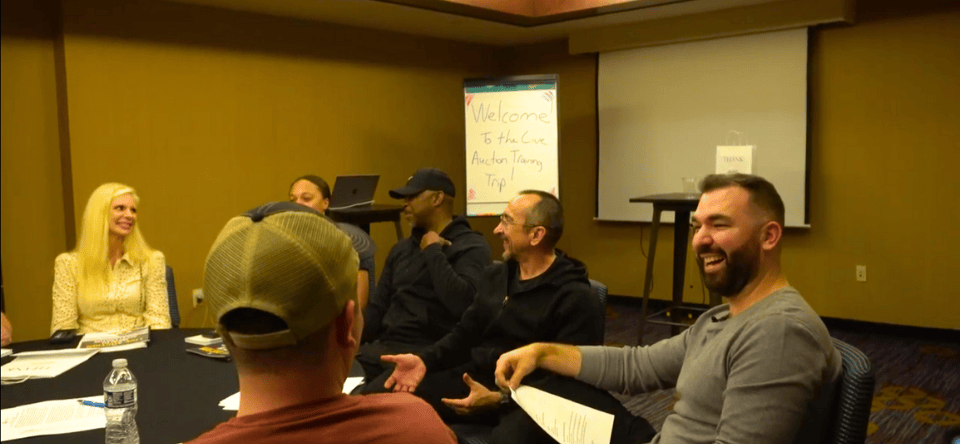Last Updated on September 9, 2025
Table of contents
Planning Your Tax Lien & Deed Strategy: Align With The Season
Understanding how natural seasons influence our energy and productivity can help us plan a better approach to tax lien and tax deed investing. In the northern part of the United States, winter days are very short – sunrise after 8:00 a.m. and darkness before 5:00 p.m. Many people feel less energetic during winter and more motivated during summer. This is not just anecdote; seasonal affective disorder is a mood disorder in which reductions in daylight hours are associated with low energy, oversleeping and overeating. Recognizing these cycles helps us pick the right time to research, bid at auctions and follow up on deals.
In this article we talk about how to match your investing activities with both the seasons of nature and the seasons of your business. The discussion is based on the ideas shared in our video. We also provide a simple action plan, links to more detailed guides and a call to benefit from our free resources.
Why does the season matter in tax lien investing?
When the days are short and cold, many people feel low energy. In winter, reduced daylight hours can lead to sleeping too much and a lack of motivation. In contrast, long summer evenings often give us more time and enthusiasm to attend auctions, research properties and follow up on leads. Being aware of these natural cycles allows us to align heavy research and networking tasks with periods when we have higher energy. It also reminds us to be kind to ourselves in slower months by focusing on planning and education rather than forcing through deals.
The bar chart below summarizes how perceived energy levels can change across the four seasons. It illustrates why many investors feel more driven in summer and spring and why winter is a good time for planning and learning.
What are the seasons of real estate investing?
Just as nature has spring, summer, autumn and winter, your investing journey has different phases. In spring you plant seeds by gathering lists of upcoming tax sales, learning about county rules and identifying counties with favourable interest rates. Summer is the time to cultivate – performing due diligence, visiting properties and attending auctions. Autumn is the harvest when you collect returns from interest payments or take deed ownership of properties. Winter is the time for renewal: reviewing what worked, setting goals and gaining more knowledge.
Typical tasks in each season
- Planning (spring) – build a calendar of tax sale dates in your state and adjacent states. Sites like county treasurer pages and our own auction calendar provide official dates. Remember that a tax lien is a legal claim against a property to secure unpaid taxes.
- Cultivating (summer) – perform due diligence on each property. Check county records, inspect properties, estimate repair costs and prepare your bid amounts. Our guide on picking the right properties to drive for tax deed sales explains how to filter lists effectively.
- Harvesting (autumn) – attend auctions or submit bids online. Track redemption periods and be ready to take ownership if the property is not redeemed. Learn how to work with partners by reading our article on partnering with us on deals.
- Reviewing (winter) – evaluate your results, refine your strategy and focus on education. Building the right attitude is critical; learn about the #1 trait you need to make tax liens and deeds work.
How do you develop conscious competence?
Many beginners start in a phase known as unconscious incompetence – they do not know what they do not know. The goal is to reach conscious competence, where you understand the process and can apply it confidently. Moving through these stages requires consistent learning and practice.
- Learn the basics
read trusted definitions of tax liens and tax deeds. A tax lien is a lien imposed on property by law to secure payment of delinquent taxes. A tax deed allows a buyer to obtain ownership when the property owner fails to pay taxes. Use official county websites or our free training resources for accurate information.
- Collect sale lists
gather dates and property lists from county treasurer or auditor websites. In our video we recommend collecting all sale dates for your state and then moving on to neighbouring states. This ensures you always have upcoming auctions to attend.
- Perform due diligence
verify property condition, location, market value and any existing liens. Skip properties with structural issues or toxic waste. Our in‑depth guides show how to perform due diligence step by step.
- Attend auctions
whether online or in person, participate in auctions regularly. Some investors strike a home run on their first auction, while others need to attend multiple sales before winning a bid. Patience and persistence are important.
- Review and refine
after each auction, assess your results. Did you win a lien or deed? What did you learn? Use winter months to review your notes and set new goals.
Five‑day action plan
Writing down small daily tasks helps build momentum. Use this simple plan over the next five days to move closer to your first tax lien or deed purchase:
| Day | Task | Purpose |
| 1 | List upcoming tax sale dates in at least two counties | Provides a calendar of opportunities |
| 2 | Choose one county and download the property list | Gives you data to analyze |
| 3 | Review property records and assess market value | Builds due diligence skills |
| 4 | Set a budget and define maximum bid amounts | Keeps your investments disciplined |
| 5 | Register for the auction and mark reminders | Ensures you are ready to bid |
Frequently asked questions
County tax sales are usually scheduled once or twice a year. The exact dates vary by county; many states publish calendars months in advance. Check your county treasurer’s website or use our auction calendar to see upcoming dates. Remember that redemption periods and interest rates differ by jurisdiction.
No. Some tax lien certificates are available for just a few hundred dollars, while others require more capital. Many investors begin by purchasing small liens to learn the process. Because the lien is secured by the property, the risk can be lower than other investments when proper due diligence is done.
It is normal not to win at every auction. Some investors attend two or three auctions before securing a lien or deed. View your first few auctions as learning experiences. Record your observations, refine your bidding strategy and continue to participate; over six to twelve months you can build a consistent track record.
After purchasing a tax lien, there is usually a redemption period during which the property owner can pay the taxes and reclaim the property. This period varies by state, often six months to three years. If the owner does not redeem, you can initiate a deed application process and take ownership free and clear of mortgages, subject to local rules.
Conclusion and call to action
Planning your investing activities around natural and business seasons can improve your success. Use winter to plan and learn, spring to gather lists, summer to do field work and autumn to harvest returns. Commit to building your competence by taking small daily actions. Our resources are designed to support your journey: start with our free mini course, subscribe to our YouTube channel for weekly tips and schedule a free call if you want hand‑holding help. These calls are not sales pitches; we will look at your goals and suggest a path forward.
Author
Dustin Hahn is a tax lien and deed investor with more than twenty years of experience and hundreds of successful deals. He founded to help investors buy tax deeds up to 90% off and earn up to 36% return on tax lien certificates. Dustin’s resources have been called the “most useful” by new investors, and his YouTube channel has thousands of free videos. He believes the best time to start real estate investing was twenty years ago; the second best time is today.









